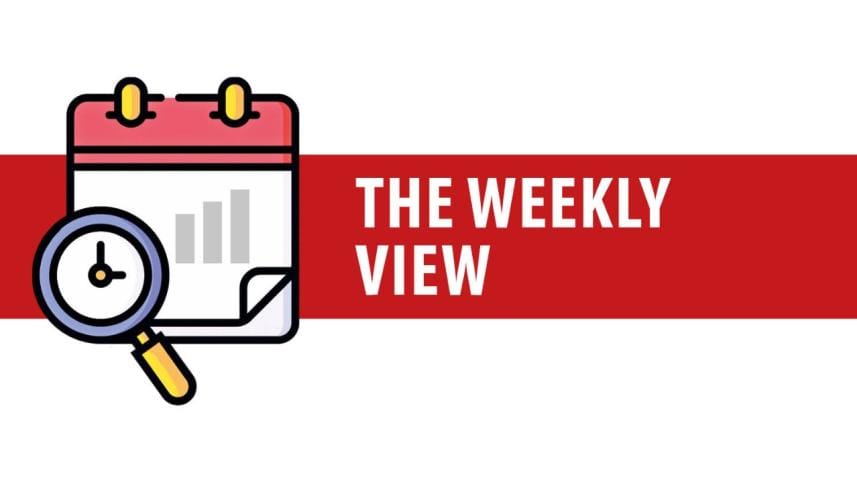Bowing to corruption remains the norm for businesses

After working for several years in a Chattogram-based manufacturing firm, a young executive decided to quit his job and pursue his dream of becoming an entrepreneur by setting up an export-oriented shoe factory in 2017.
He had some bank deposits and also applied for loans to set up the business, but when he began looking for suitable parcels of land in Dhaka and Chattogram, he was met with exorbitant prices and fake land owners.
Finally, after nearly six months, he found a suitable, undisputed plot for his dream factory.
But just when it seemed that things were looking up, the real hurdles appeared.
As he began applying for licenses, certificates and permissions from various government departments, he faced numerous hurdles.
At least 32 certificates are required to open an export-oriented factory and the would-be entrepreneur had to lobby or pay bribes for most such certificates. He also faced long delays in getting all the utility connections.
For example, although an importer's licence should require only 10 to 15 days to approve, it took him over one and a half months to secure it.
All told, over two years had passed before he could finally set up the factory and begin trial operations in 2020.
But even before he could start his business and hunt for customers, the young dreamer felt the burden of repaying instalments for his bank loan since the one-year grace period had already expired.
Like this first-generation businessman, most established businesspeople also consider corruption as the greatest impediment to conducting business in Bangladesh.
They believe corruption is adding to the cost of doing business, hampering smooth business activities, and lowering confidence among businesspeople.
According to a survey, styled "The state of the business environment in Bangladesh", corruption was the top problematic factor for businesses in 2023, with a staggering 67.6 percent of respondents complaining about high levels of corruption.
The study was conducted by the Centre for Policy Dialogue (CPD) in partnership with the World Economic Forum.
In a similar survey conducted by the CPD last year, 64.6 percent of respondents thought corruption was the biggest obstacle to doing business in the country, saying they had to pay bribes for tax payments, licences and utilities.
The country is adopting digital initiatives in many areas but the pace is slow and there are still loopholes.
For example, business owners are now allowed to pay value added tax (VAT) for different local purchases digitally, with no requirement to visit the VAT office.
But some officials still ask businesspeople to visit the VAT office with a printed copy of the VAT payment, only to demand extra money to process the document.
Bribes are also required to obtain operating licenses from various government departments.
A top cement manufacturer opined that there was no public office in Bangladesh that was free of corruption.
According to him, businesspeople deal with corruption for everything, from obtaining trade licenses to filing tax returns. They have to provide bribes to obtain timely clearance at every step.
For example, he said: "As per the rules, it takes three days to release one container of raw materials from the port. But if the release is delayed by three extra days, a businessperson incurs losses of Tk 30 lakh. The customs officials delay the release of the containers so that they can receive undue benefits from businesspeople."
Although he admitted that corruption was a normal issue for developing countries like Bangladesh, he demanded a system to gradually reduce it.
Businesspeople consider corruption a significant challenge for several reasons. It can create an uneven playing field, giving an advantage to businesspeople willing to pay bribes or engage in other illicit activities.
The problem has gone from persistent to inevitable, so most businesspeople have no choice but to embrace bribes in order to get anything done in a timely manner.
A garment exporter said most garment owners do not protest since time is a very important issue in the RMG sector. So, they have little choice but to pay bribes for the timely release of raw materials.
Because of such processes, the private sector is also becoming corrupt.
If a businessman prepares all his documentation properly, he or she can at least argue with corrupt government officials. But in most cases, bowing to corruption is an easier way out.
Corruption in the country's private banking sector is also increasing.
Many private banks have been accused of giving depositors' money as loans to ineligible persons while honest entrepreneurs running small and medium enterprises face hardships getting meagre loans.
Non-performing loans are also increasing in private commercial banks. During the July-September period of 2023, the default loans in private banks rose by Tk 7,902 crore, as per the central bank's latest data.
Top business leaders believe there is no alternative to ensuring good governance in both the public and private sectors to combat corruption.
And to ensure good governance, commitment from the top levels of the government is mandatory, they opined.





 For all latest news, follow The Daily Star's Google News channel.
For all latest news, follow The Daily Star's Google News channel.
Comments